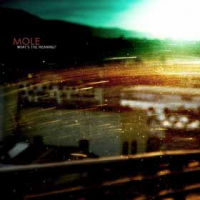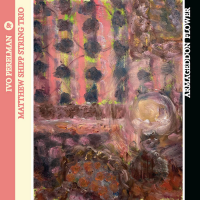Home » Jazz Articles » Talkin' Blues » Gregg Allman's Memoir
Gregg Allman's Memoir
 A few years back, Gregg Allman said in an interview that one thing was for sure, the book he was writing wouldn't have a song title. So when the publication of his memoir, My Cross To Bear (William Morrow, 2012) was announced, my initial reaction was somewhere between skepticism and ambivalence. Not only was the book a play on his song, "Not My Cross to Bear," but at least eight of the chapters were directly taken from song titles.
A few years back, Gregg Allman said in an interview that one thing was for sure, the book he was writing wouldn't have a song title. So when the publication of his memoir, My Cross To Bear (William Morrow, 2012) was announced, my initial reaction was somewhere between skepticism and ambivalence. Not only was the book a play on his song, "Not My Cross to Bear," but at least eight of the chapters were directly taken from song titles.Beyond that, I wondered about the impact prolonged and excessive drug and alcohol abuse had on his long-term memory and on his capacity to have truly experienced reality as it happened. Still, there was room for optimism here, both Eric Clapton and Keith Richards, despite serious addictions, managed to pull off excellent memoirs. So notwithstanding my high regard of Allman's considerable musical legacy, my expectations for his memoir were tempered.
To my surprise, it is on par with both Clapton's and Richards' books. A great deal of credit is no doubt due to co-writer Alan Light for his editorial and organization skills in putting together such a smooth read. Equally important was the contribution of John Lynskey, editor of Hittin' The Note, the Allman Brothers Fan Club's quarterly magazine, who, according to Allman, supplied lots of information and jogged his memory about many career-related events. Even serious fans are apt to learn something from the details he flushed out.
For example, twenty years ago in an interview, Allman claimed to have hitchhiked from Los Angeles to Jacksonville, Florida to form

Allman Brothers Band
band / ensemble / orchestraA New York Times review seems to revel in Allman's sexploits:
"Women threw themselves at him, and he devoured them. He didn't have the heart to turn many away. One of the great virtues of My Cross to Bear, his slightly better-than-average rock memoir, is how frank Mr. Allman is about the perks of being a tall, blond, intricately bewhiskered white rock god in skinny jeans who can bellow the blues like a black man."
The review neglected two particularly important aspects of the book. First, is Allman's recounting of his musical back story. We get a lot of insight into what he was exposed to, and who he met along the way. For instance, in 1966 the virtually unknown Allman Joys were playing a club in New York City when

The Rolling Stones
band / ensemble / orchestrab.1962
Equally significant is the insight into Gregg and Duane's relationship. Over the years, from books, magazines, and interviews it seemed to me, and surely many other fans, that Duane Allman was a strong protective presence in Gregg Allman's life as they weathered the effects of a murdered father, years of military school, and the hard knocks of their early life on the road as struggling musicians. The book, however, reveals a complex sibling relationship and family dynamic. (In the book Allman breaks some exciting news about Galadrielle Allman, Daune's daughter. She is working on an extensive biography of her father.)
Gregg and Duane shared a deep dedication and drive to make music, and had an extremely close relationship, yet there were also unmistakable elements of abuse. Radio personality Howard Stern had some intriguing insights as he peppered Allman with questions for nearly an hour. He got Gregg to admit that Duane had intimidated and abused him (even punching him in the face) and that growing up he resented that his mother hadn't shielded him from the mistreatment—Stern posited that his anger from that might have something to do with his history of substance abuse.
Stern also asked about the portion of the book when Gregg Allman recounts being less than impressed with seeing

Jimi Hendrix
guitar, electric1942 - 1970
Allman's recollections of sound wizard Tom Dowd, music impresario Bill Graham, road crews, managers, and band mates are also important elements of the book. There's a great inside story of Duane and Clapton from Gregg, who was there for three days in the Miami studio at the Layla (Polydor, 1970) sessions.
Three weeks later, the band was booked for a made-for-TV event at the Fillmore East in New York City. We finally get the back story of the September 23, 1970 film footage. It would have been the original Allman Brothers Band's first (and only) significant television exposure, but the television crew screwed up the sound input for half of the band's performance. Gregg relates that Duane was "fucking flaming" with rage at the missed opportunity.
This was particularly insightful for me, because I happened to see them exactly one week earlier in Florida. It was essentially the same show, but as paradoxical as it might sound, they were considerably looser and their playing was correspondingly tighter—learning that this was their television debut gave me the explanation I had wondered about since seeing the Fillmore video footage.
Like Eric Clapton, Allman acknowledges the ravages of drug and alcohol abuse, and admits mistakes, but in contrast to Clapton, there seems to be a tendency to employ sweeping excuses and generalizations to avoid taking responsibility. In this regard, Clapton's extensive self examination shows a genuine effort to understand the origins of his addictive personality, and an acceptance of responsibility for its effect on others. On the other hand, Clapton's memoir left me yearning to discover more about the music, and here Gregg Allman excels.
It's been over 40 years since Duane Allman was killed in a motorcycle accident at the age of 24. I'm glad I read this book before I saw Gregg Allman's interview, in which he talks about his engagement to a 24 year-old woman, 40 years his junior—that bit of irony might have kept me from buying the book, and despite this Hefneresque turn of events, I thoroughly enjoyed My Cross To Bear.
Tags
Gregg Allman
Talkin' Blues
Alan Bryson
United States
The Allman Brothers Band
The Rolling Stones
Jimi Hendrix
Comments
PREVIOUS / NEXT
Support All About Jazz
 All About Jazz has been a pillar of jazz since 1995, championing it as an art form and, more importantly, supporting the musicians who make it. Our enduring commitment has made "AAJ" one of the most culturally important websites of its kind, read by hundreds of thousands of fans, musicians and industry figures every month.
All About Jazz has been a pillar of jazz since 1995, championing it as an art form and, more importantly, supporting the musicians who make it. Our enduring commitment has made "AAJ" one of the most culturally important websites of its kind, read by hundreds of thousands of fans, musicians and industry figures every month.








 Buy Now
Buy Now

















